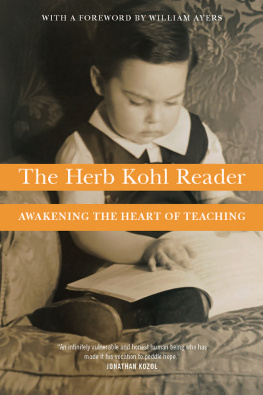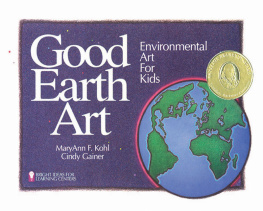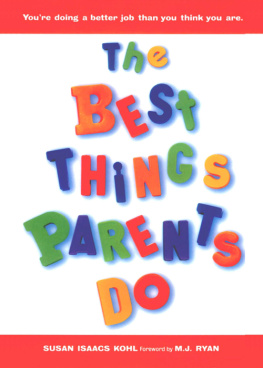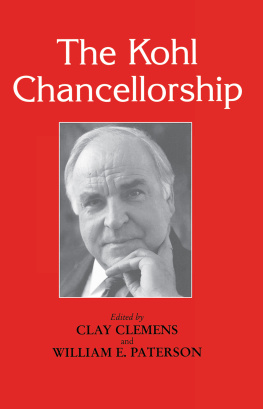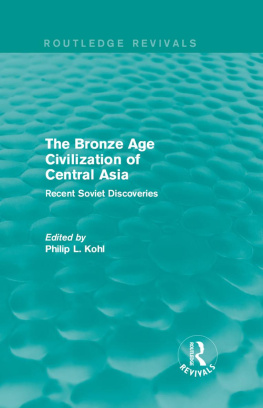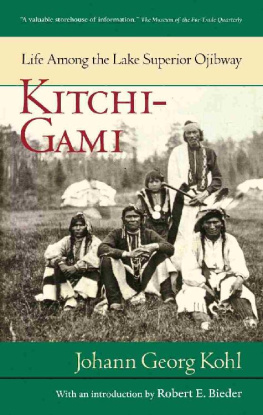
Also by Herb Kohl
36 Children
The Discipline of Hope: Learning from a Lifetime of Teaching
Growing Minds
I Wont Learn from You: And Other Thoughts on Creative Maladjustment
The Open Classroom
Reading, How To
She Would Not Be Moved: How We Tell the Story of Rosa Parks and the Montgomery Bus Boycott
Should We Burn Babar? Essays on Childrens Literature and the Power of Stories
Stupidity and Tears: Teaching and Learning in Troubled Times
The View from the Oak: The Private Worlds of Other Creatures (with Judith Kohl)
The Herb Kohl Reader
Awakening the Heart of Teaching
Herbert Kohl
With a foreword by William Ayers

2009 by Herbert Kohl
All rights reserved.
No part of this book may be reproduced, in any form, without written permission from the publisher.
Requests for permission to reproduce selections from this book should be mailed to:
Permissions Department, The New Press, 38 Greene Street, New York, NY 10013.
Published in the United States by The New Press, New York, 2009
Distributed by W. W. Norton & Company, Inc., New York
LIBRARY OF CONGRESS CATALOGING-IN-PUBLICATION DATA
Kohl, Herbert R.
The Herb Kohl reader : awakening the heart of teaching / Herbert Kohl, with a foreword by William Ayers.
p. cm.
Includes bibliographical references.
ISBN: 978-0-1-59558-420-5 (pbk.)
1. Teaching. I. Title.
LB1025.3.K657 2009
371.102dc22
2008043939
The New Press was established in 1990 as a not-for-profit alternative to the large, commercial publishing houses currently dominating the book publishing industry.
The New Press operates in the public interest rather than for private gain, and is committed to publishing, in innovative ways, works of educational, cultural, and community value that are often deemed insufficiently profitable.
www.thenewpress.com
Composition by NK Graphics
This book was set in Goudy
To Tonia, Erica, and Josh, and all of the students
I have been privileged to teach
and
To Emilia Soledad Kohl Arenas
Foreword
HERB KOHL: POET LAUREATE OF TEACHING
A Tribute by William Ayers
I first met Herb Kohl in 1967 shortly after the publication of the now-classic 36 Children , his riveting account of teaching sixth grade in a Harlem public school. I was a new teacher searching for affirmation while struggling to make sense of my own everyday classroom realitychallenges and setbacks, of course, and those tiny hard-won triumphs in acute if poignant contrast with my vast idealism and aspirations. Id taken off on a summer quest to find every educator and education writer who had inspired me in the previous yearSylvia Ashton-Warner, Paul Goodman, John Holt, Jerome Bruner, Barbara Biber, Stokely Carmichael, Jonathan Kozol, and Jay Featherstone to start. I was determinedimmodestly, I supposeto meet and talk with each one. Today I have no idea why I thought any of them would agree to set aside time for me, and yet, astonishingly, every one of them welcomed me graciously and with open arms.
I arrived in New York by bus, and my first phone call was to Herb. He invited me over, and when, an hour later, I rang the bell at the unassuming apartment on Eighty-eighth Street, Judy Kohl answered and led me into their tiny kitchen, where the three of us spent the rest of the morning. I mentioned the surprising and overwhelmingly positive reviews of 36 Children , but Herb was skeptical: Whenever youre praised for your youthful idealism, look out! He thought that the praise was patronizing at best and would soon enough be followed with criticism, opposition, and maybe even a threat. We all laughed. Anyway, I think theyd be happy if I shut up from now on, so lets see what theyre saying in a couple of years.
His insights about this most complex, idiosyncratic, and mysterious craft had an immediate and lasting impact on me, but now, more than forty years and thirty-five books later, its clear that Herb Kohls influence has resonated, echoed, and multiplied and that he has directly touched thousands upon thousands of teachers and school people. He has not shut upnot for a minute, in spite of the opposition he anticipatedbut has instead produced a steady stream of work that has turned into a torrent as the years have passed.
36 Children is the mother ship, a classic indeed, but no one should stop there Growing Minds is my favorite book for new teachers, and Golden Boy as Anthony Cool , a photo essay and the first book to try to understand graffiti as more than vandalism, captures the spirit of a spiritless situation and the self-identification of young people who are rendered nameless and faceless and literally cast out. I Wont Learn from You does more than understand, explain, and offer concrete strategies to work with resistant students; it also provides a penetrating and sweeping critique of the content and the form of the established educational project in toto, raising the troubling possibility that the rebel kids are right and that our prescription for them (literally what we do to them) is wrongand that they know it. Making Theater , A Grain of Sand , A Book of Puzzlements , and Mathematical Puzzlements are packed with the kind of workaday advice and practical arts that teachers can use off the shelf or adapt to unique circumstances, much like Kohls Good Stuff column, which appears regularly in the radical teaching journal Rethinking Schools . Painting Chinese is a more reflective piece on how we learn; The University for Our Time , written during the upheavals of 1968, is a more visionary look at what is to be done in higher education; Language and Education of the Deaf , an important manifesto in the deaf power movement and the struggle for dignity, identity, and deaf rights, is more incendiary; From Archetype to Zeitgeist , a smart and demystifying answer to the right-wing enthusiasm for all-inclusive lists of important knowledge, is more slyly subversiveall of these are bound together in a single teacher/writer who has managed to keep his vision and his idealism intact, along with his anger, someone still willing to speak the unwelcome truth to power, still trying to comfort the afflicted while afflicting the comfortable, still refusing the detached stance of the scholar or the cool pose of the cynic, insisting in words devout and large that we might still open our eyes and embrace the common good, and that, yes, we still might change the world.
In the past half century Kohl has emerged as a singular figure in educationunique in his reach, his grasp, his authority. Indeed, Herb Kohl is the poet laureate for generations of humanistic teachers.
In part this is because no one has touched every aspect of the enterpriseclassroom life, curriculum and teaching, school reform, educational policywith such luminous force. Like his Harvard classmate Jonathan Kozol, Kohls writing addresses questions of policy and politics; like his mentors Paulo Freire and Myles Horton, he is fiercely focused on issues of racial and social justice; like fellow teachers Vivian Gussin Paley, George Dennison, and James Herndon, Kohl has a penetrating eye for the layered meanings generated and enacted in everyday classrooms; like his early contemporaries in the Mississippi Freedom Schools, he illuminates the link between individual change and social transformation; and, like his friends Maxine Greene and Jay and Helen Featherstone, he is a philosopher, a storyteller, an artist, an activist.
Next page
